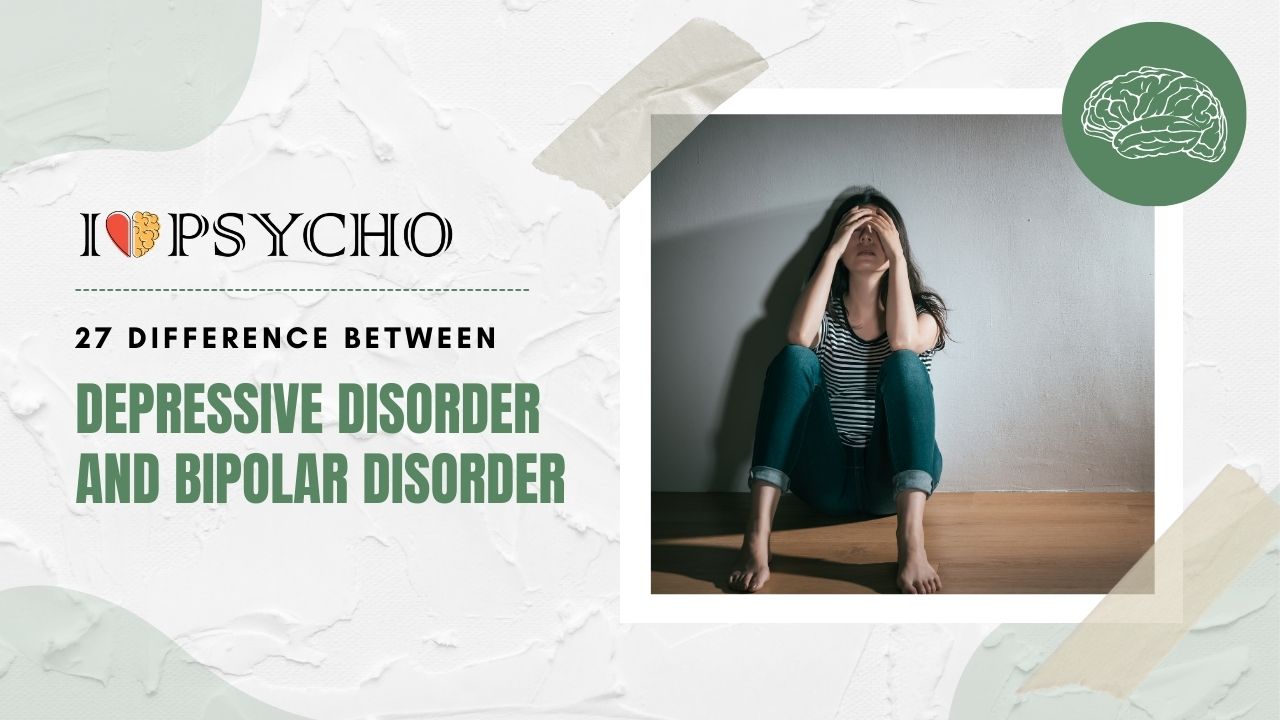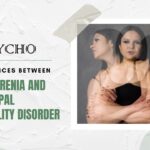Depressive Disorder and Bipolar Disorder both cause mood problems, although they differ in nature, symptoms, and treatment. Major Depressive Disorder (MDD) or clinical depression is characterized by chronic and overwhelming sorrow, despair, and a lack of interest or pleasure in activities. MDD symptoms include exhaustion, hunger or weight fluctuations, sleep abnormalities, and concentration issues. Importantly, MDD features sustained low mood without manic or hypomanic episodes. Depressive Disorder is treated with psychotherapy, medication, or both.
In contrast, Bipolar Disorder, formerly known as manic-depressed disorder, causes significant mood swings between manic or hypomanic and depressive periods. During manic episodes, energy, impulsivity, euphoria, and poor sleep may lead to dangerous behavior. Bipolar Disorder has depressive periods like Depression. Please note that mood swings vary in severity and length. Bipolar I, with severe manic episodes that may need hospitalization, and Bipolar II, with hypomanic and depressed episodes, are the two primary kinds of bipolar disorder. Mood stabilizers, antipsychotics, and mood-management psychotherapy are common Bipolar Disorder treatments.
The main difference between Bipolar Disorder and Depressive Disorder is manic or hypomanic episodes. Bipolar Disorder is mania/hypomania followed by depressed episodes, while depressed Disorder has continuous low mood without cyclical swings. The treatment methods for various illnesses vary, thus accurate diagnosis is vital. Misdiagnosis can aggravate a patient’s health and cause incorrect therapy.
In summary, Bipolar Disorder cycles between manic/hypomanic and depressed episodes, while depressed Disorder has chronic depression symptoms. Healthcare providers must understand the differences between these two conditions to assist mood disorder sufferers in living happier, more balanced lives.
|
S.No. |
Aspect |
Depressive Disorder |
Bipolar Disorder |
|
1 |
Primary Mood State |
Persistent sadness |
Fluctuating |
|
2 |
Manic Episodes |
Absent |
Present |
|
3 |
Hypomanic Episodes |
Absent |
Present (in type II) |
|
4 |
Mood Swings |
Steady low mood |
Alternating mood states |
|
5 |
Duration of Episodes |
Longer depressive |
Shorter manic and depressive |
|
6 |
Recurrence |
Often |
Less frequent |
|
7 |
Typical Age of Onset |
Any age |
Late teens to early 20s |
|
8 |
Cognitive Impairment |
Common |
During manic episodes |
|
9 |
Energy Levels |
Low |
High during manic, low during depressive |
|
10 |
Sleep Patterns |
Insomnia or excessive sleep |
Decreased need for sleep during manic |
|
11 |
Decision-Making |
Impaired |
Impulsive during manic |
|
12 |
Suicidal Thoughts |
Common |
During depressive episodes |
|
13 |
Medication Treatment |
Antidepressants |
Mood stabilizers and/or antipsychotics |
|
14 |
Euphoria |
Rare |
Present during manic episodes |
|
15 |
Psychosis |
Uncommon |
Possible during manic episodes |
|
16 |
Family History |
Tends to cluster in families |
Strong genetic component |
|
17 |
Coping Mechanisms |
Less adaptive |
Overconfidence during manic |
|
18 |
Impact on Relationships |
Strained |
Periods of instability |
|
19 |
Social Withdrawal |
Common |
During depressive episodes |
|
20 |
Onset Triggers |
Often linked to stress |
Triggers less clear |
|
21 |
Response to Antidepressants |
May help |
Can trigger manic episodes |
|
22 |
Self-Image |
Negative |
Altered during manic episodes |
|
23 |
Treatment Challenges |
Finding effective antidepressants |
Balancing mood stabilizers |
|
24 |
Awareness of Condition |
Usually aware |
May not recognize manic episodes |
|
25 |
Quality of Life |
Impaired |
Impaired during both episodes |
|
26 |
Emotional Regulation |
Difficulty regulating |
Impaired during manic, depressive |
|
27 |
Prognosis |
Tends to be chronic |
Periods of stability possible |
Frequently Asked Questions (FAQs)
Q1: What are the primary distinctions between Bipolar and Depression?
The main difference is mood episodes. The symptoms of Major Depressive Disorder (MDD) include sorrow, despair, and a loss of interest. In contrast, Bipolar Disorder cycles between manic or hypomanic (high mood, impulsivity) and depressed phases. Its cycle pattern distinguishes it.
Q2: How are Bipolar Disorder and Depression symptoms different?
Bipolar Disorder has manic or hypomanic episodes, unlike depression. Bipolar Disorder patients may have heightened energy, racing thoughts, reduced sleep, and impulsivity during manic episodes. Depressive Disorder retains a low mood without manic or hypomanic symptoms.
Q3: Can Depression Lead to Bipolar Disorder?
Depressed Disorder and Bipolar Disorder are different, however “Bipolar II” causes depression and hypomanic episodes. Note that not all Depressive Disorder patients develop Bipolar Disorder. A mental health practitioner must diagnose to treat.
Q4: Are the treatment approaches for Depressive Disorder and Bipolar Disorder the same?
Treatment methods vary greatly. Depressive Disorder is treated with psychotherapy, antidepressants, or both. Manage mood oscillations using mood stabilizers, antipsychotics, and targeted psychotherapy for Bipolar Disorder. Incorrect therapy might aggravate symptoms, emphasizing the necessity of precise diagnosis.
Q5: Manage or avoid Bipolar Disorder mood swings?
Bipolar Disorder mood fluctuations can be addressed with therapy and lifestyle changes. Psychotherapy and mood stabilizers can minimize manic and depressive episodes. Management might also depend on lifestyle adjustments including proper sleep, stress management, and drug misuse avoidance.









